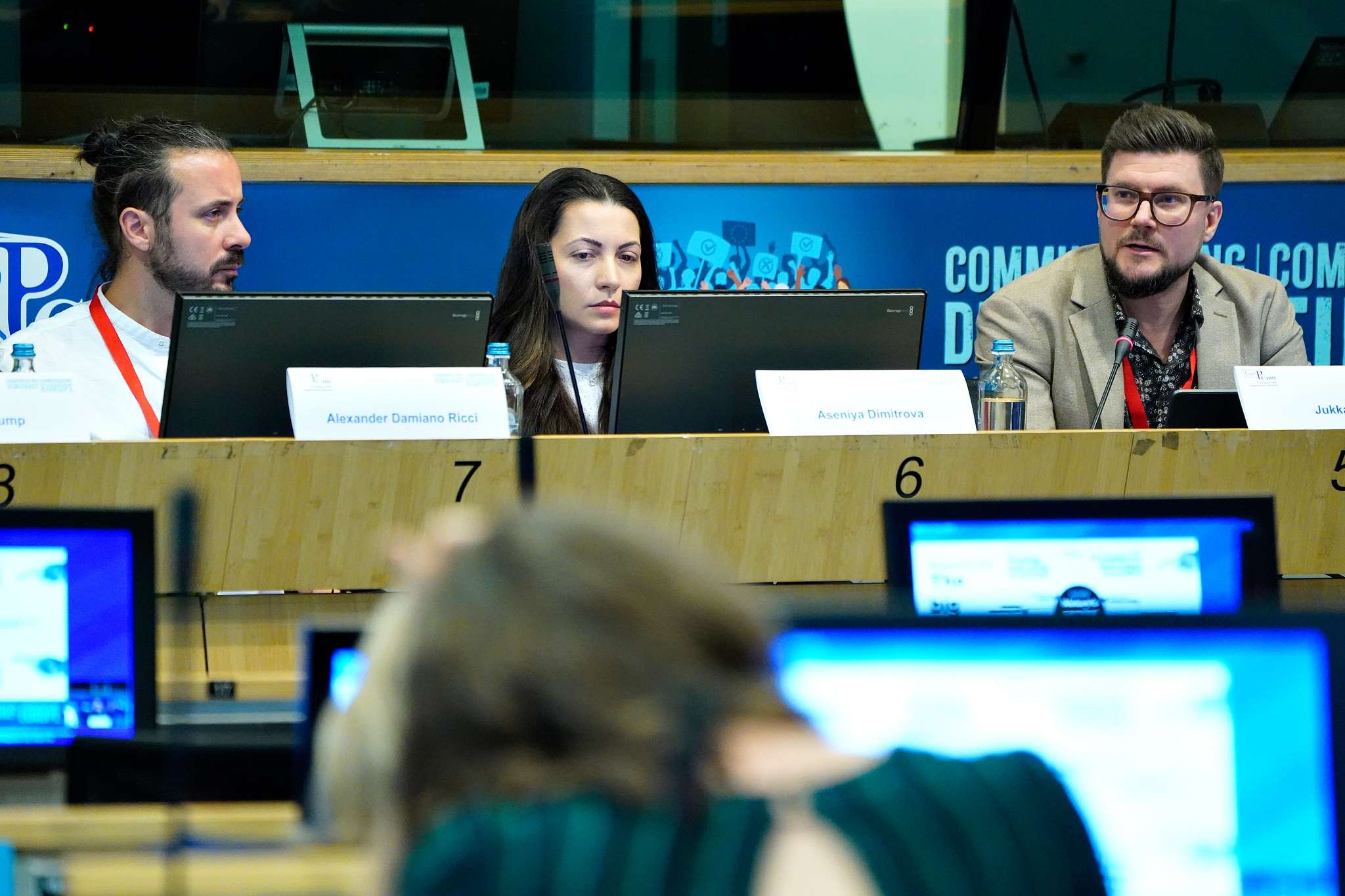Thessaloniki gets ready for its metro launch in November
The underground rapid transit lines have been under construction for almost two decades due to various project delays
 TheMayor.EU logo
TheMayor.EU logo The annual conference for experts in public communication had its 14th edition earlier this week
The Read Twice project was featured this Monday at the annual conference for experts in Public communication - EuroPCom, held in Brussels. There, project leader Aseniya Dimitrova gave interesting examples of how to get young people on board with the process of building media literacy, using her Read Twice project experience as a showcase. The workshop on the topic of Media Literacy also involved experts from the media and private sectors, as well as representatives from EU institutions.
The two-day EuroPCom conference is a traditional event of the European Committee of the Regions – the institution representing the voices of the local and regional authorities in the EU decision-making process.
The 14th edition gathered prominent communication specialists, EU stakeholders and representatives of the civic sector to discuss how to get voters engaged ahead of the European parliamentary elections in 2024 and paid special attention to the growing threats of disinformation and the risks standing before European democracies.
With this in mind, the European Read Twice project was superbly positioned to show a solid way to respond to these challenges. In particular, the project responds to the need to involve young people in the fight against fake news and disinformation and to do it in a sustainable way. Aseniya Dimitrova underlined that while high media literacy and critical thinking skills are key to making our societies resilient to this modern threat, our educational systems are not equally prepared to teach such skills.
Since the lengthy process of adapting educational skills takes a lot of political will and time, she suggested that initiatives like Read Twice, which rely on peer-to-peer learning and exchange of best practices among project partners, might be a quicker, if temporary, solution.
In particular, the project is based on the idea that there are considerable differences when it comes to media literacy in Europe. Countries from South-Eastern Europe stand in a particularly vulnerable position in their capacity to withstand disinformation campaigns.
The latter is a finding by the Open Society Institute in Sofia, whose Media Literacy Index places Bulgaria at the bottom in the EU with Romania standing close and Croatia also experiencing serious challenges in this direction.
That is why NGO partners from these countries sent prospective young media professionals to capacity-building trainings in Berlin and Porto, where they got acquainted with the basics of journalistic production and ethical standards, as well as with the ways disinformation works. They then returned home and organised workshops for their peers, thus expanding the positive effects of the initial trainings and multiplying the impact strength of project activities.
 R2 project leader Aseniya Dimitrova (centre), from Euro Advance Association, presented the initiative as a good example of involving young people in the process of media literacy enhancement. Image credits: European Union / Fred Guerdin
R2 project leader Aseniya Dimitrova (centre), from Euro Advance Association, presented the initiative as a good example of involving young people in the process of media literacy enhancement. Image credits: European Union / Fred Guerdin

The underground rapid transit lines have been under construction for almost two decades due to various project delays

Now you can get your wine in Talence by paying directly in Bitcoin

That’s because the state has to spend money on updating the railway infrastructure rather than subsidizing the cost of the popular pass

Rethinking renewable energy sources for the urban landscape

The examples, compiled by Beyond Fossil Fuels, can inform and inspire communities and entrepreneurs that still feel trepidation at the prospect of energy transition

Now you can get your wine in Talence by paying directly in Bitcoin

The 10th European Conference on Sustainable Cities and Towns (ESCT) sets the stage for stronger cooperation between the EU, national and local level to fast track Europe's transition to climate neutrality.

At least, that’s the promise made by the mayor of Paris, Anne Hidalgo

The underground rapid transit lines have been under construction for almost two decades due to various project delays

At least, that’s the promise made by the mayor of Paris, Anne Hidalgo

Hostal de Pinós is located in the geographical centre of the autonomous region

Despite its church-y name, the district has long been known as the hangout spot for the artsy crowds

Urban dwellers across the EU are having a say in making their surroundings friendlier to people and the environment.

Forests in the EU can help green the European construction industry and bolster a continent-wide push for architectural improvements.

Apply by 10 November and do your part for the transformation of European public spaces

An interview with the Mayor of a Polish city that seeks to reinvent itself

An interview with the newly elected ICLEI President and Mayor of Malmö

A conversation with the Mayor of Lisbon about the spirit and dimensions of innovation present in the Portuguese capital














